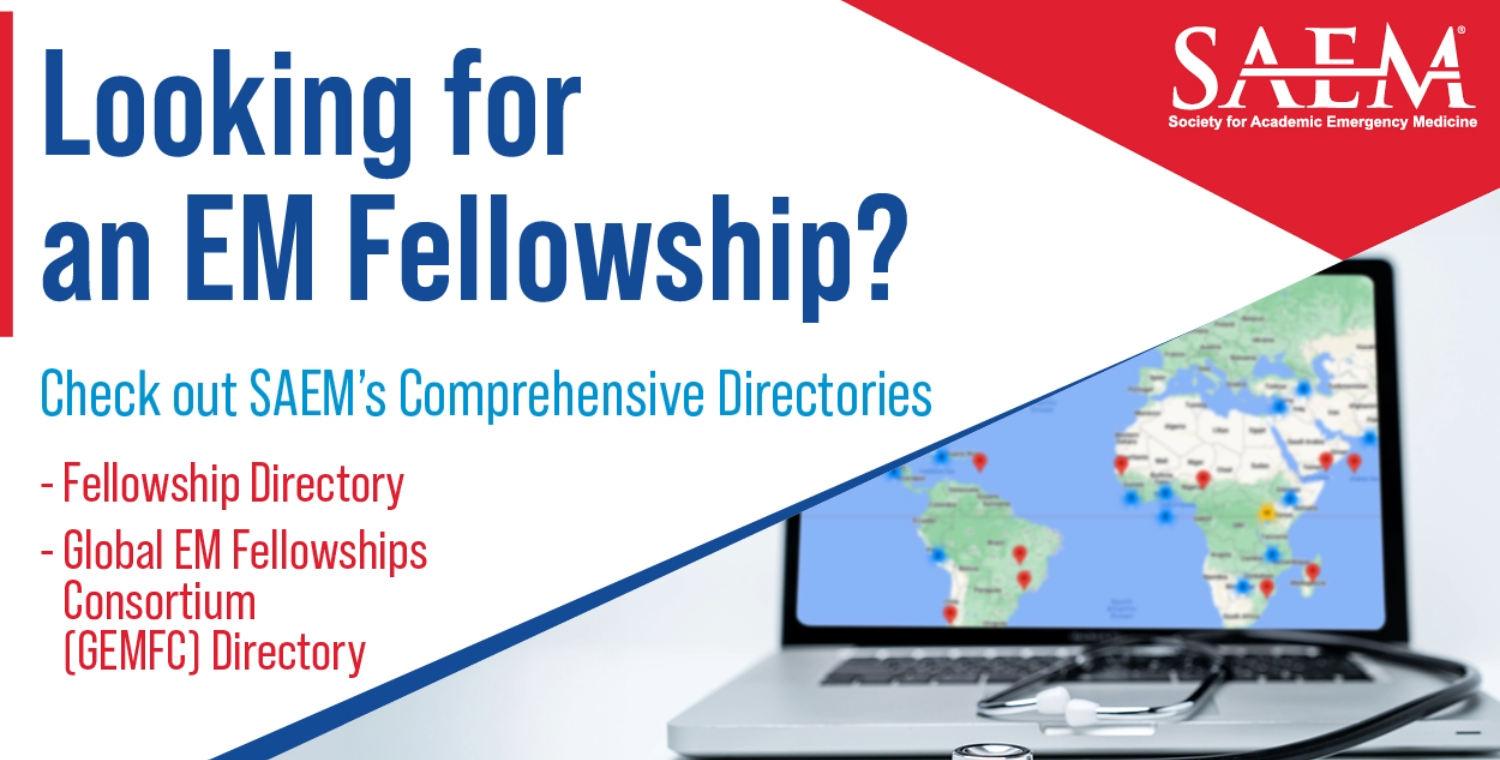Setting the Stage

To Pursue a Fellowship or Not: Strategies to Leverage Both
Following the completion of residency, physicians wanting to pursue additional specialized training may opt for fellowship programs. Fellowships in emergency medicine (EM) have become remarkably diverse and innovative. Some lead to American Board of Emergency Medicine-accredited subspecialty board certification, while others offer non-accredited certifications or advanced degrees. Below is a list of the wide variety of available EM fellowships, with new training opportunities announced every year. Learn more about these specialty areas by checking out the SAEM Interest Group pages.
- Academics/Faculty Development
- Cardiovascular Emergencies
- Critical Care
- Disaster Medicine
- EM Administration
- Emergency Medical Services
- Emergency Psychiatry and Behavioral Health
- Environmental Health
- Forensic Medicine
- Health Care Administration
- Hyperbaric and Undersea Medicine
- Hospice and Palliative Care
- Informatics
- Injury Prevention
- International/Global Health
- Legal Medicine
- Medical Education
- Medical Toxicology
- Neurologic/Neurovascular Emergencies
- Observation Medicine
- Occupational Health
- Pain Management
- Pediatric EM
- Preventive Medicine
- Research
- Simulation
- Sports Medicine
- Transport Medicine
- Trauma
- Ultrasound
- Wilderness Medicine
Alternative to Fellowship Training
While a fellowship is not mandatory for securing an academic position, it does offer distinct advantages. Regardless of whether you pursue a fellowship, you should be prepared to articulate your niche and highlight personal strengths and skills that make you a valuable applicant. These may include master's or professional degrees such as: Master of Business Administration (MBA); Master of Education (MEd); Master of Health Administration (MHA); Master of Public Health (MPH); Master of Health Care Delivery System (MHCDS); and Juris Doctor (JD). Additionally, you can highlight any special certification training in areas such as education, emotional intelligence, informatics, FEMA online courses (disaster medicine), quality, and team STEPPS.
Emphasize a passion for a topic that might not be fully developed at your prospective hospital, or propose a novel idea you wish to explore and introduce. Fellowships, master's degrees, and other certifications are not obligatory for every resident. Their value is largely determined by your career objectives and how you intend to apply the knowledge and skills acquired in these programs. While not obligatory, they provide supplementary experience and expertise, distinguishing you from other applicants, particularly when applying for academic positions.
Board Certification
For new graduates, it is important to begin the process of board certification early. Candidates applying for academic positions are expected to be either board certified or board eligible. Board-certified physicians have completed residency at an Accreditation Council for Graduate Medical Education (ACGME)-accredited training program and passed a national certification exam assessing their ability to provide quality patient care within their specialty.
Board certification is governed by the American Board of Emergency Medicine (ABEM) and the American Osteopathic Board of Emergency Medicine (AOBEM). The certification exams share a similar format and candidates holding a Doctor of Osteopathic Medicine (DO) degree are eligible to sit for either of the two board certifications. While in recent years DO graduates have predominantly opted for ABEM certification, the choice between the two is beyond the scope of this guide. However, it’s essential to remain informed about application deadlines, which can be found on the ABEM website. The timeline may vary if you choose to apply for a fellowship, but it is generally recommended to complete your board certification within the original timeline.
